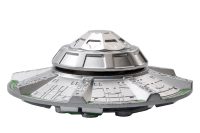In previous decades, the U.S. military-industrial complex was active in terms of mergers and acquisitions (M&A). However, the public might think that this wave of mergers has ended. Currently there are no mega-mergers on the horizon, but in the near future Sikorsky helicopters have found a new home.
Lockheed Martin Corp. (NYSE: LMT) announced that it entered into a definitive agreement to acquire Sikorsky Aircraft from United Technology Inc. (NYSE: UTX) for $9.0 billion in cash. The company expects to fund the acquisition with a combination of new debt issuances and available cash. The transaction is expected to close in the fourth quarter of 2015 or the first quarter of 2016.
Both companies agreed to make a joint election under the Internal Revenue Code, which treats the transaction is an asset purchase for tax purposes. This election generates a cash tax benefit with an estimated net present value of $1.9 billion for Lockheed Martin and its shareholders.
Sikorsky is the UTC helicopter unit that has the famous Black Hawk helicopters, and this unit has been up for sale or potential divestment for a few months. It is also one of the largest helicopter makers globally.
ALSO READ: 3 Oil and Gas Stocks Analysts Want You to Buy Now
As far as what it would mean for Lockheed Martin, it would be the largest deal for Lockheed since it merged with Martin Marietta in a stock merger worth roughly $10 billion at the time. The 1994 reports around that deal put the combined annual sales back then at roughly $23 billion. Now Lockheed’s combined market value is $63 billion and its 2014 revenue was $45.6 billion.
As far as what this would mean for UTC, its 2014 annual report showed the following for the Sikorsky unit: 15,264 employees, $7.5 billion in net sales and $219 million in operating profit. The total UTC operations in 2014 had 211,500 employees, $65.1 billion in net sales and $6.6 billion in net operating income.
This transaction might be considered more of a bolt-on deal had things been the other way around. It looks as though this would represent more than a bolt-on for Lockheed Martin, as it would be a significant revenue booster. This sale also would help UTC with its balance sheet and corporate plans ahead, and it may give it more spending money if UTC wants to pursue nondefense acquisitions to help the conglomerate boost its top line or bottom-line results.
Separately, Lockheed Martin announced its second-quarter results Monday morning as $2.94 in earnings per share (EPS) on $11.6 billion in revenue, compared to Thomson Reuters consensus estimates of $2.67 in EPS on $10.99 billion in revenue. At the same time the company increased its outlook for 2015 to $11.00 to $11.30 in EPS and $5.425 million to $5.575 million in consolidated operating profit.
ALSO READ: 5 High-Dividend Growth Stocks to Buy Now
Shares of Lockheed Martin closed Friday down 0.2% at $201.18, in a 52-week trading range of $161.06 to $207.06. In early trading indications Monday, shares are up 1.4% at $204.00. The stock has a consensus analyst price target of $214.19.
UTC shares closed Friday down 0.5% at $110.74, in a 52-week trading range of $110.60 to $124.45. Shares were up 1.8% at $112.70 in early trading indications. The consensus price target is $132.32.
It’s Your Money, Your Future—Own It (sponsor)
Retirement can be daunting, but it doesn’t need to be.
Imagine having an expert in your corner to help you with your financial goals. Someone to help you determine if you’re ahead, behind, or right on track. With SmartAsset, that’s not just a dream—it’s reality. This free tool connects you with pre-screened financial advisors who work in your best interests. It’s quick, it’s easy, so take the leap today and start planning smarter!
Don’t waste another minute; get started right here and help your retirement dreams become a retirement reality.
Thank you for reading! Have some feedback for us?
Contact the 24/7 Wall St. editorial team.




